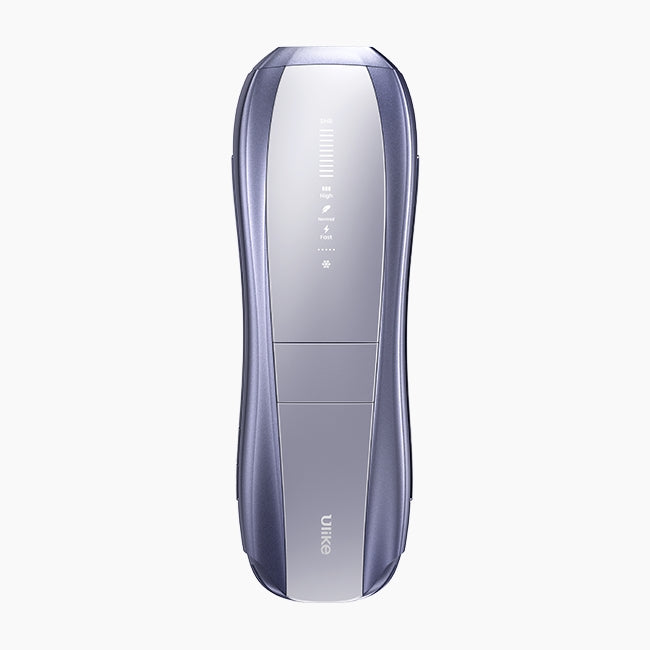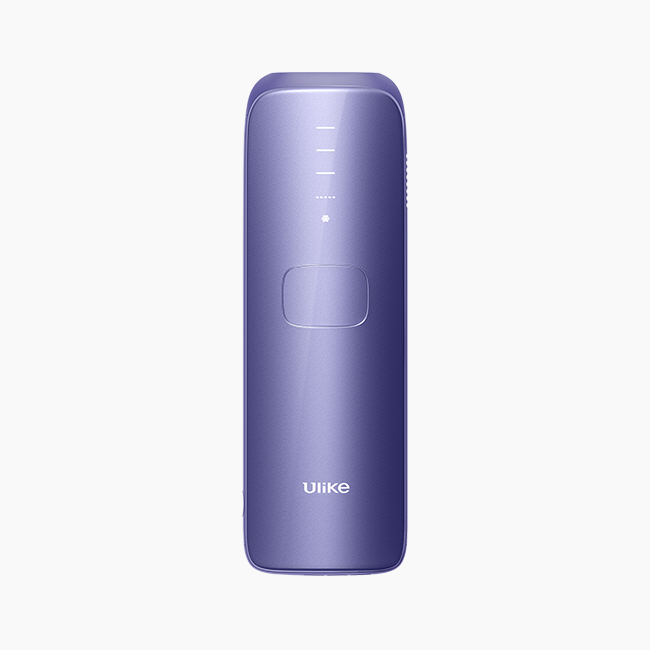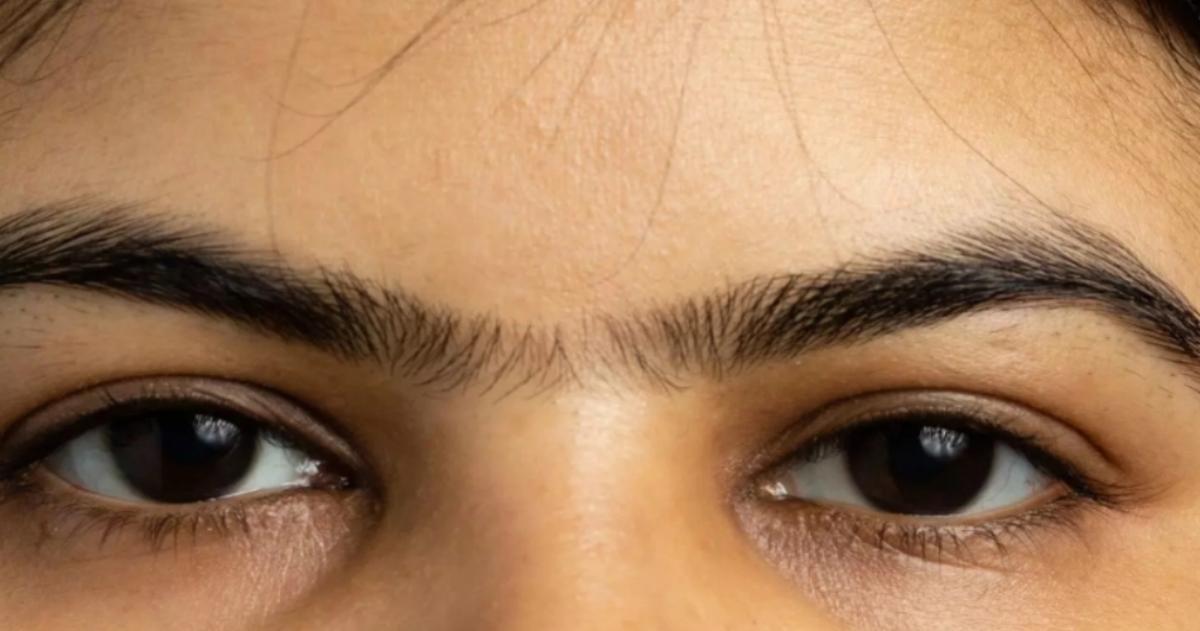Hirsutism is defined as an excess of hair in the body areas where only fine hair grows in general. For example, facial hair in women or coarse and thick body hair regardless of gender. Hirsutism is just a literal term and the real cause of this excess in the body hair lies in the hormonal disturbances.
Two of the most common causes of excessive body and facial hair include endometriosis and PCOS. While the signs and symptoms of both are quite similar, the hormonal disturbance in both is different and so is the treatment. As excessive body hair is one of the most apparent, or if I dare say “ugly” symptoms of these hormonal disorders, let us discuss endometriosis and PCOS in relation to body hair in this article.
Table of Contents:- Part 1: What is IPL Hair Removal?
- Part 2: How Does IPL Hair Removal Work?
- Part 3: What are the Differences Between IPL Hair Removal and Laser?
- Part 4: Benefits and Side Effects of IPL Hair Removal
Part 1: Overview of PCOS and its Effects on Body Hair

We will discuss both hormonal orders separately to understand the differences between them better. So, let us provide a detailed description of PCOS.
Hormonal Imbalance in PCOS
PCOS, also known as polycystic Ovarian Syndrome, is a condition in which there are,
- Multiple cysts in the ovaries as seen on ultrasound
- Excessive production release of androgen in the body
- Disturbance in the normal menstrual cycle
This is discussed in an article by Healthline [1]. Note that the hormonal imbalance in PCOS involves androgen, a male hormone responsible for the development of secondary sexual characteristics in men. Androgen works by binding to the hormonal receptors present in hair follicles and stimulating them to produce excessive hair.
Hence, those women who have PCOS also have an abnormal level of male hormones in their body which leads to the PCOS symptoms being more prominent.
Hair-Related Symptoms of PCOS
Below are the hair-related symptoms of PCOS:
- Hirsutism: The male hormone androgen stimulates the hair follicles and leads to increased growth of hair in the areas where the hair in men grows. For example, excessive facial hair and body hair on the chest, back, and abdomen. Also, this hair is thick and coarse.
- Androgenic Alopecia: While the hair on the areas you don't want to grow starts growing, there is shedding of hair on the area you want thick hair which is scalp hair. This is because androgen causes the shrinking of hair follicles on the scalp. Thus, women with PCOS experience male pattern baldness on their crown regions.
- Oily Skin and Acne: The androgen hormone causes the release of excess oil which leads to oily skin and clogging of pores. Furthermore, excessive hair growth traps bacteria, dirt, sweat, and impurities. All these factors lead to acne formation.
Part 2: Overview of Endometriosis and its Effects on Body Hair

Endometriosis is a term entirely different from PCOS and its symptoms also affect the body hair differently. So, let us help you understand what endometriosis is.
Hormonal Imbalance in Endometriosis
Endometriosis is defined as the condition in which tissues resembling the endometrial wall of the uterus grow outside the uterus in locations like the pelvis wall, ovaries, peritoneum, vagina, bladder, or nearby tissues if you know which hormones endometrium releases, you'd know that that hormone creates hormonal imbalance.
To elaborate, it is estrogen, a female hormone, causing hormonal imbalance in endometriosis as mentioned in an article by Medical News Today [2]. Now, it is important to understand estrogen does not thicken your body hair or make your scalp hair fall because it is a female hormone.
However, it causes inflammation in different areas of the body and excessive blood loss in the menstrual cycle. These factors result in hair loss on the scalp.
Hair-Related Symptoms of Endometriosis
While the hair-related symptoms are more prominent in PCOS, endometriosis can also cause some hair-related issues indirectly. These issues are given as,
- Hair loss on the scalp: Do you wonder if endometriosis can cause hair loss? Well, Endometriosis can cause hair loss due to Female Pattern Baldness triggered by excessive estrogen release in the body. This condition is known as telogen effluvium and the effect has been stated in Cosmedica[3]. Also, stress caused by painful periods, burden on mental health, and long-lasting fatigue are responsible for hair loss.
- Hair growth on the body:Do you ask yourself can endometriosis cause facial hair? The effect of estrogen released by endometrial tissues on the body hair is negligible as compared to that of PCOS.
Role of Medication in Hair Health
In the case of Endometriosis, it is not the condition that causes hair loss, but rather the stress and medications of the treatment that cause hair loss. The medications of endometriosis include,
- Ibuprofen for pain
- Oral contraceptive pills for regressing the size of endometrial tissues
- GnRH and aromatase Inhibitors to reduce estrogen level
The first two drugs reduce inflammation but cause increased shedding of the hair. The second 2 drugs lead to an imbalance in androgen-estrogen levels in the body and androgen-like effects. Consequently, hair growth on the body increases while hair on the scalp falls.
Part 3: Comparing PCOS and Endometriosis in Terms of Hair Growth

Let us compare both of these conditions side by side now.
Differences in Hormonal Influence
In the case of PCOS, androgen is mainly the hormone causing a hormonal imbalance that leads to,
- Male pattern baldness
- Excessive male-like growth of hair on the body of women
Regarding endometriosis, an increased amount of estrogen is released. However, it does not impact hair shedding or hair growth directly on the body or scalp.
Impact of Stress and Chronic Conditions
Both PCOS and Endometriosis are chronic conditions that put stress on the physical and mental health of the patients. However, the impact of stress on body hair is more marked in endometriosis as compared to that of PCOS.
As discussed earlier, painful menstruation and periods in addition to inflammation and side effects of drugs used to treat this condition lead to stress and thus hair loss.
Medication and Treatment Side Effects
The treatment of both of these conditions requires oral contraceptive pills which can cause an imbalance in the hormones. Depending on how these drugs impact your hormones, you can suffer from hirsutism, hair loss, or both.
Furthermore, the drugs that are used to reduce the level of estrogen in endometriosis increase the level of androgen in the body and this androgen has a negative impact on body and scalp hair as discussed earlier.
Part 4: Managing Hair Changes with PCOS and Endometriosis

People often ask, “Can you have PCOS and endometriosis?" The answer is that you can as the pathology of both is different and involves different tissues.
As the causes and effects of Hormones in these diseases are different, so are the treatment options.
Hair Management Strategies for PCOS
We will mainly focus on the management techniques related to PCOS here. Below is how to manage hirsutism in PCOS,
- Lifestyle changes: Lifestyle changes like improving diet, exercising regularly, losing weight, and managing stress helps in controlling the level of androgen. Consequently, excessive facial hair growth may be reduced.
- Anti-androgenic drugs: Anti-androgenic drugs like spironolactone, anti-insulin drugs like metformin, and OCP are used to reduce the level of androgen in the body in PCOS.
- Cosmetic treatments: You can get rid of unwanted hair on the body through semi-permanent hair removal solutions such as use of eflornithine cream, IPL, laser hair removal, and electrolysis.
Endometriosis Hair Loss Management Strategies
The hair management strategies for endometriosis include,
- Reducing inflammation:Hair shedding that occurs due to inflammation can be reduced using anti-inflammatory medications
- Managing stress: Managing stress through different ways like exercise, meditation, yoga, and psychotherapy also have positive effects on hair growth.
- Use multivitamins and minerals: Multivitamins and mineral supplements with biotin, vitamin D, omega-3 fatty acids, and vitamin B complex improve the health of hair, makes them stronger, and reduces hair fall to a great extent
- Supplements and scalp care:Supplements with marine collagen, saw palmetto, and more increase hair growth rate. Some examples of such supplements include viviscal and nutrafol.
Conclusion
Endometriosis is a disorder in which there is an excess amount of estrogen in the body due to extra-uterine endometrial tissues while the hormonal disorder in PCOS involves androgen. So, there is excessive hair growth with loss of scalp hair in PCOS and inflammation and stress-induced hair loss in endometriosis.
Thus, the hair-related treatment strategies of PCOS are based on balancing hormones and reducing inflammation and stress in endometriosis. Also, hair removal technique like IPL hair removal is used to deal with hirsutism in these diseases.






